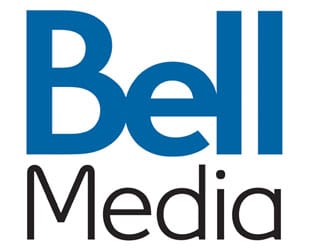 Allowing licensees to benefit from incentive auction cash infusion while allowing them to stay in business with less bandwidth may be an attractive option for some – but not, says Expanding Opportunities for Broadcasters Coalition – unless the FCC eliminates the risks involved.
Allowing licensees to benefit from incentive auction cash infusion while allowing them to stay in business with less bandwidth may be an attractive option for some – but not, says Expanding Opportunities for Broadcasters Coalition – unless the FCC eliminates the risks involved.
EOBC’s Preston Padden said that channel sharing may well be a necessary component of the auction. Without it, in a plan requiring a certain number of broadcasters to exit the business entirely, there is an excellent chance that the FCC will fail to scare up enough spectrum to ensure the success of the entire endeavor.
Padden notes that his petition is aimed at kicking off a constructive discussion, not reciting a series of complaints.
That said, he cites four problems with the existing plan. The petition summary states them as such:
First, the Incentive Auction R&O prohibits common contractual rights, such as puts, calls, options, and rights of first refusal, that are logical components of agreements between two parties to integrate significant portions of their operations.
Second, the Incentive Auction R&O limits channel sharing arrangements to those negotiated before the auction, forcing broadcasters to enter into complicated agreements before they know critical details about the auction.
Third, the Incentive Auction R&O would restrict the flexibility of channel sharing participants by permanently and formally entering those arrangements into the FCC’s Television Table of Allotments, thereby requiring a “host” station to forever give up a portion of its spectrum.
Finally, the Incentive Auction R&O would allow the Commission, in some circumstances, to select a station’s channel sharing partner and force the other station to accept that partner. The Commission should reconsider these decisions to ensure that channel sharing rules and procedures are consistent with broadcaster needs and expectations.
Padden said that need to be reconsidered and add flexibility for broadcasters who are willing to enter into a Channel Sharing Agreement (CSA).
The suggested prescriptions are also four in number:
1) clarify that parties to broadcast CSAs are free to negotiate for common contractual rights;
(2) permit broadcasters to enter into CSAs either before or after the incentive auction;
(3) ensure that parties to CSAs have the flexibility to choose whether those agreements are permanent or for a fixed term; and
(4) clarify that the Commission will never force a broadcaster to accept a channel sharing partner.
Padden concluded, “The channel sharing rules and procedures that the FCC adopted in the Incentive Auction R&O, if left unchanged, will have the unintended consequence of causing broadcasters to rethink the channel sharing option rather than achieving the Commission’s goal of promoting channel sharing as a way to increase the amount of broadcast spectrum relinquished in the reverse auction. Although the agency has repeatedly recognized the need to provide broadcasters with flexibility in crafting CSAs, the Incentive Auction R&O does not provide the flexibility that broadcasters will need to relinquish some or all of their spectrum usage rights. Given the important role that channel sharing will play toward the FCC’s ability to achieve its spectrum reallocation goals, the Commission should reconsider its channel sharing rules consistent with the foregoing to make channel sharing as attractive to broadcasters as possible.”
RBR-TVBR observation: The tighter the regulatory box, the fewer potential participants that will be able to find a way to fit into it. We believe Padden is right – the FCC has to make this as easy as possible if it wants to maximize its auction spectrum harvest.



